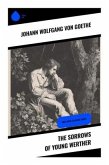In "Three Lives," Gertrude Stein presents a groundbreaking exploration of identity and experience through the intertwined narratives of three women-Melanctha, Anna, and Lena. Stein employs a distinctive literary style characterized by repetitive, rhythmic prose and a fragmented narrative structure that challenges conventional storytelling. Set against the backdrop of early 20th-century America, the work captures the complexities of individual lives while reflecting the broader cultural transformations of the time, particularly concerning gender and sexuality. Stein's exploration of modernism is evident as she moves away from traditional narrative forms, instead focusing on the inner lives and emotional landscapes of her characters. Gertrude Stein, a key figure in the avant-garde movement, was heavily influenced by her experiences in Paris and her interactions with other leading artists and thinkers. Her background in philosophy and her interest in the nature of language and perception profoundly shaped her literary output. "Three Lives" emerged from her desire to articulate the nuances of human relationships and the subtleties of personal identity, themes that resonate throughout her body of work. This book is essential for readers interested in early modernist literature and the evolution of narrative form. Stein's innovative approach invites readers to delve deeply into the psyche of her characters, making it a profound study of human experience. "Three Lives" challenges conventional expectations and rewards the reader with a richly layered understanding of individuality, making it an indispensable addition to any literary canon.
Bitte wählen Sie Ihr Anliegen aus.
Rechnungen
Retourenschein anfordern
Bestellstatus
Storno








